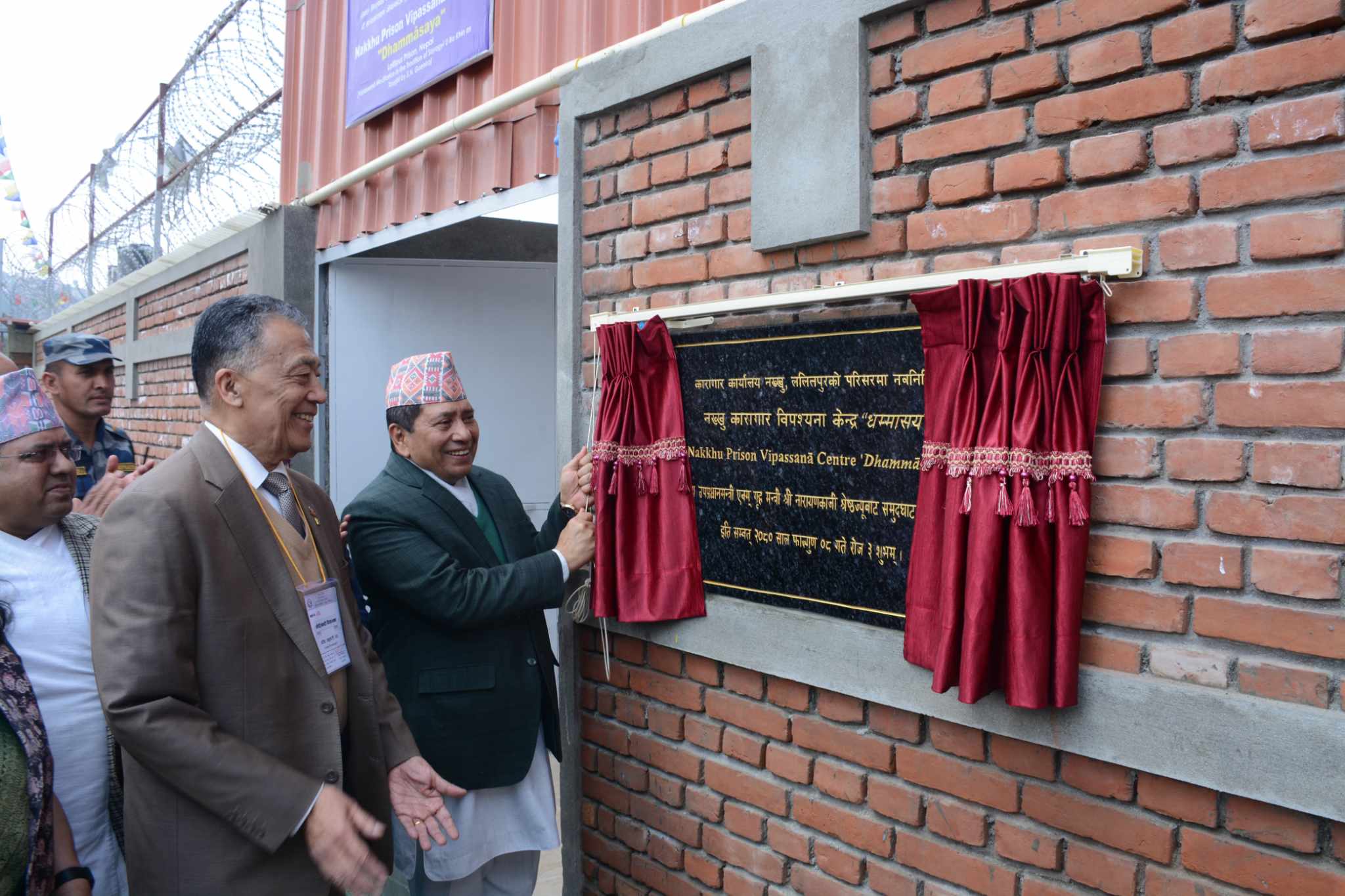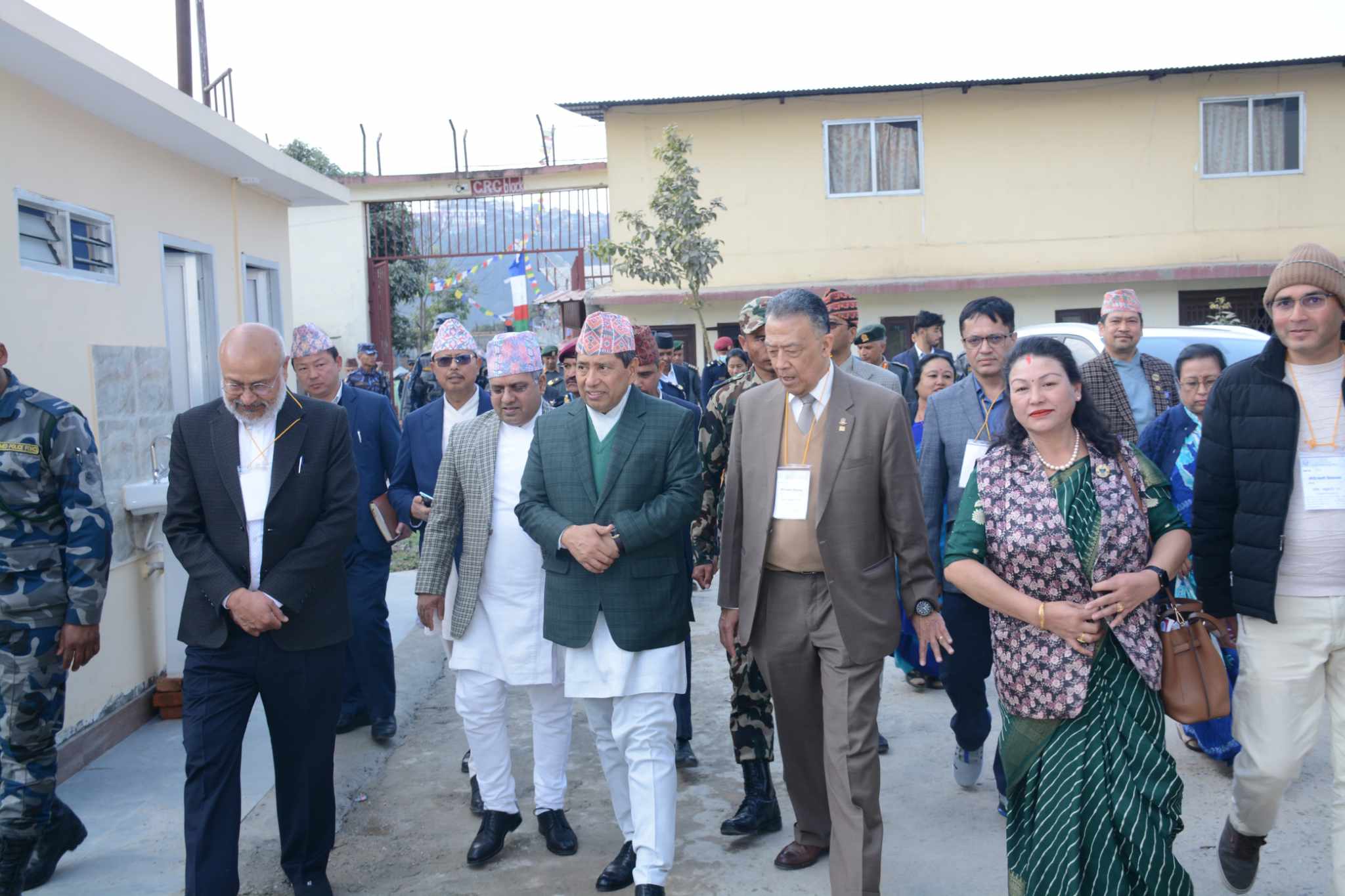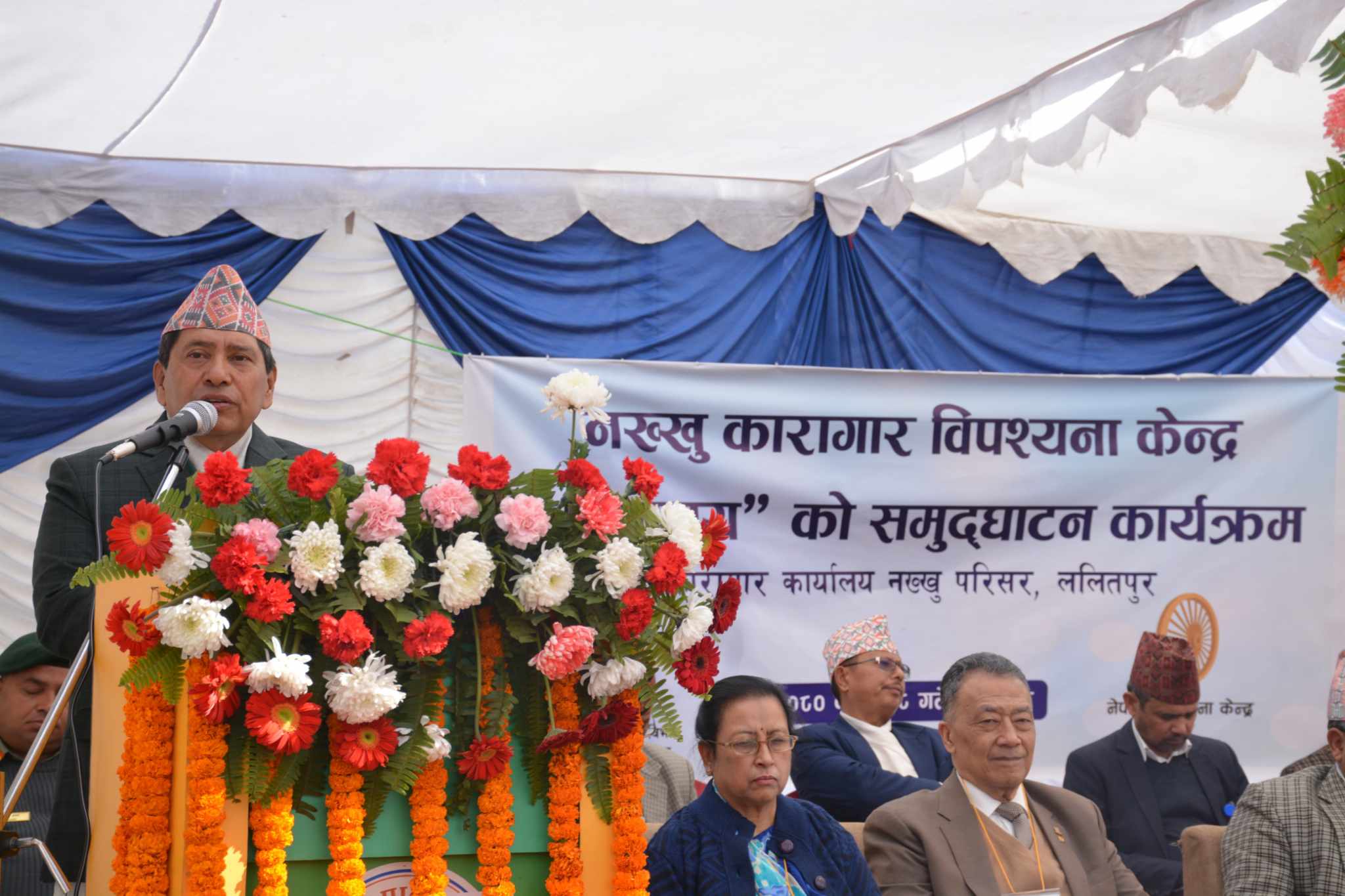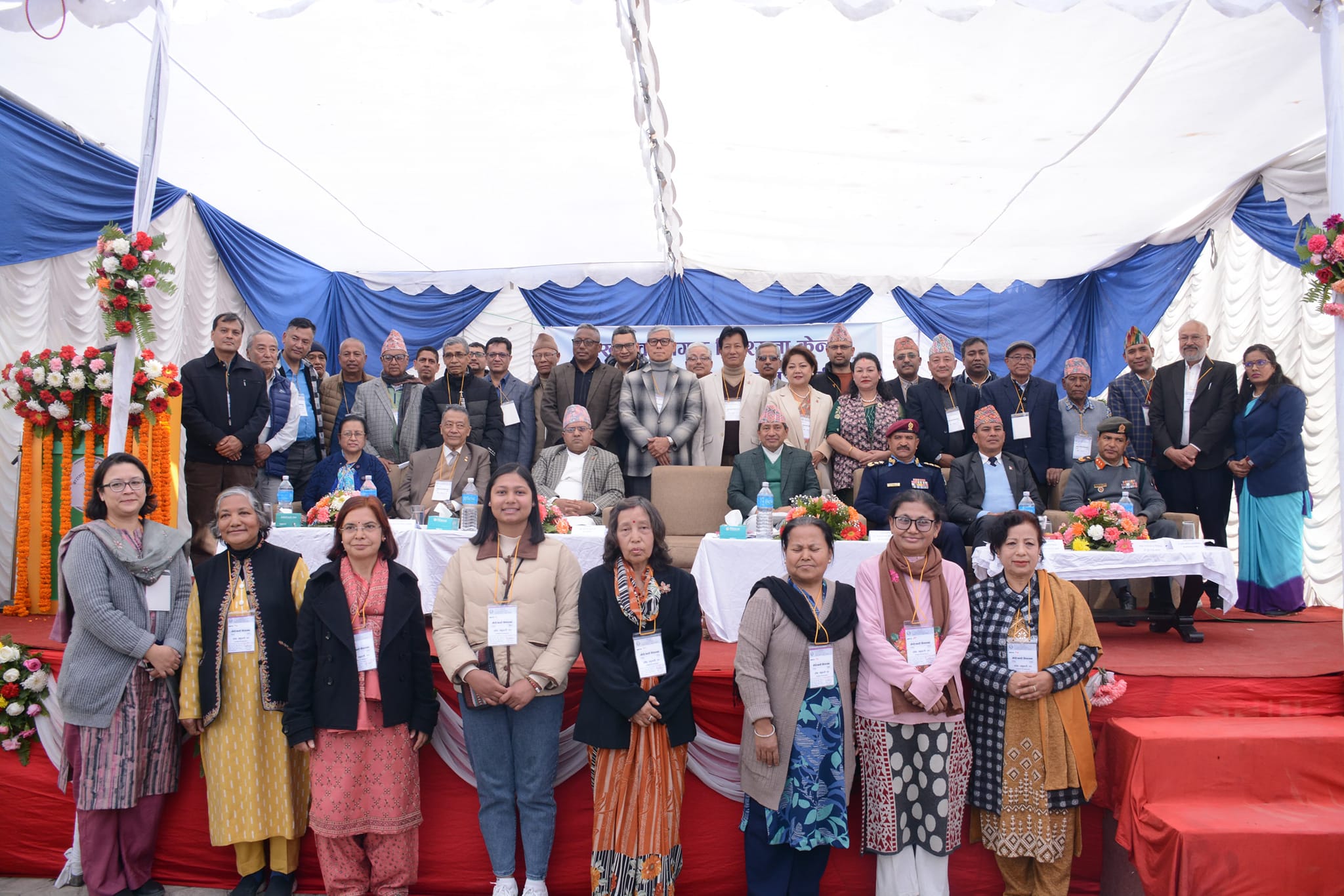
In a groundbreaking move towards prison reform, the inauguration of the Dhammāsaya Meditation Center within Nakkhu prison marks a significant shift in rehabilitation strategies. Deputy Primeminister and Home Minister Narayankaji Shrestha officiated the ceremony, signaling the commencement of 10-day Vipassana meditation sessions for inmates, starting this Tuesday.
Dhammāsaya (meaning : residence of dhamma) is not just a physical structure; it symbolizes a novel approach to inmate rehabilitation within the Nepalese prison system. The center’s establishment consolidates scattered prison camps into a cohesive and systematic initiative, embodying a holistic vision for the transformative power of meditation behind bars.
Addressing the inmates and attendees at the inauguration, Minister Shrestha underscored the importance of this initiative within the broader context of prison reform. He urged inmates to view their time in confinement as an opportunity for personal growth and positive change. Vipassana meditation, known for its introspective and transformative qualities, is positioned as a tool for fostering rehabilitation and resilience.

The inaugural ceremony was attended by Deputy Prime Minister and Home Minister Narayankaji Shrestha, who unveiled the center’s inaugural plaque. In his address, Minister Shrestha emphasized the government’s commitment to systematic efforts for prison reform, with a particular focus on integrating Vipassana meditation into the rehabilitation process.
The program’s initial phase involves inmates from prisons in the valley, with future plans to extend participation to interested inmates from various districts. The inclusive approach reflects a commitment to making transformative practices accessible to a broader spectrum of the incarcerated population.
Dr. Roop Jyoti, the Regional Acharya of Vipassana, shared insights into the global success of Vipassana prison camps, spanning 16 countries, including Nepal. He highlighted the participation of 428 inmates from 11 prison camps in Nepal who have previously undergone Vipassana meditation, attesting to its efficacy as a rehabilitative practice.

The establishment of Dhammāsaya was achieved within an impressive timeframe of 75/80 days, showcasing swift implementation following ministerial-level decisions. Notably, the entire project, costing around 20 million rupees, was funded through donations from individuals who have completed Vipassana meditation, exemplifying community support for such transformative initiatives.
As the sun sets on the horizon, 45 inmates are poised to embark on a 10-day Vipassana Sadhana within the confines of Dhammāsaya. The practice, characterized by complete silence, serves as a unique opportunity for inmates to delve into self-reflection and mindfulness. Breaking their silence on the 10th day, participants are expected to share their experiences, underscoring the potential impact of Vipassana within the prison context.

Dhammāsaya boasts purpose-built facilities, including a Dhamma hall for meditation, accommodation for seekers, a residence for the assistant teachers, and a dedicated kitchen building alongwith toilets. The center’s design emphasizes creating an environment conducive to self-discovery and rehabilitation.
Home Secretary Dinesh Bhattarai expressed his satisfaction with the center’s inauguration, considering it a milestone in the ongoing efforts to transform prisons into correctional facilities. He highlighted the collaborative nature of the initiative, with no government investment and the entire project being community-driven through donations.
Access to Dhammāsaya is restricted to authorized personnel, emphasizing its exclusive dedication to the practice of Vipassana meditation. The center represents a beacon of hope within the prison system, offering inmates a path to personal transformation and a chance for a brighter future beyond the confines of incarceration.